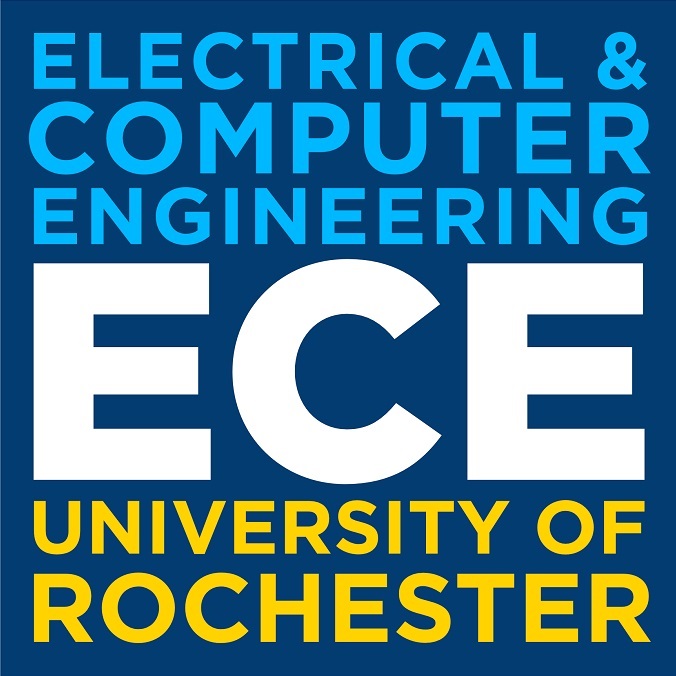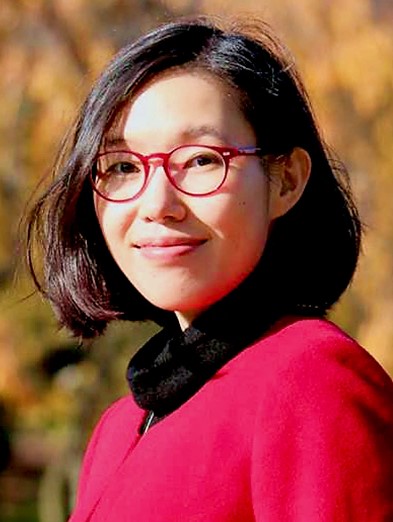ECE Seminar Lecture Series
Wide-Bandgap Material and Device Platforms Toward Integrated Quantum Photonics and Phononics
Yanan (Laura) Wang, Assistant Professor, Department of Electrical and Computer Engineering, University of Nebraska-Lincoln
Wednesday, September 6, 2023
Noon–1 p.m.
Wegmans Hall 1400

Over the past two decades, unprecedented advances have been witnessed in quantum science and technology, such as quantum sensing beyond uncertainty limits and the supremacy of quantum computing, facilitated by the capabilities of deterministically creating and coherently controlling quantum states in solid-state platforms. Various physical implementations (so-called artificial atoms) have been developed, including quantum dots, defect-related color centers, and superconducting junctions, to mimic the quantum behaviors of isolated atoms.
This talk spotlights several novel solid-state quantum materials, including silicon carbide (SiC), hexagonal boron nitride (h-BN), and lead halide perovskite (CsPb2X5, X=Br, Cl), all possessing wide bandgaps and transparent windows at visible wavelengths that are primarily beneficial to constructing dielectric optical cavities. More intriguingly, luminescent defect states (or phases) with nonclassical attributes, despite the different mechanisms, have been discovered in these materials. Case studies will be presented on how the unique combination of wide-bandgap properties and atomistic defect characteristics can empower new device functions and performance. For instance, quantum electrodynamics in cavity-emitter coupled systems, high-frequency acoustic wave propagation in phononic crystal waveguides, and nonlinear frequency conversion and photon-pair generation in whispering gallery cavities will be elaborated, based on the synergy of numerical simulations and experimental demonstrations. The perspectives of advanced engineering of such multifunctional devices and their hybrid integration will also be discussed, providing valuable guidelines for realizing quantum information transduction and processing in chip-scale integrated systems.
BIOGRAPHY
 Dr. Yanan (Laura) Wang is currently a tenure-track assistant professor in the Department of Electrical and Computer Engineering at the University of Nebraska-Lincoln. She received her Ph.D. degree in Electrical Engineering (in the area of nanophotonics and optoelectronics) at the University of Houston in 2014. Her research interests have been focused on developing advanced materials (such as two-dimensional crystals and wide-bandgap semiconductors) and functional nanodevices (such as photonic cavities, plasmonic nanostructures, optomechanical resonators, MEMS/NEMS) towards hybrid integrated photonic and phononic circuits and systems for signal processing, transduction, and sensing in both classical and quantum regimes. Dr. Wang has published over 30 peer-reviewed papers in high-impact and flagship journals (including Nature Nanotechnology, Science Advances, Advanced Materials, Nano Letters, and ACS Photonics) with >2,500 total citations. She is an active member of APS, Optica (OSA), and IEEE, has been serving as a judge for the Frontiers in Optics (FiO) /Laser Sciences (LS) Conference and referee for several highly-reputable journals, and has been selected as an APS Career Mentoring Fellow in 2022.
Dr. Yanan (Laura) Wang is currently a tenure-track assistant professor in the Department of Electrical and Computer Engineering at the University of Nebraska-Lincoln. She received her Ph.D. degree in Electrical Engineering (in the area of nanophotonics and optoelectronics) at the University of Houston in 2014. Her research interests have been focused on developing advanced materials (such as two-dimensional crystals and wide-bandgap semiconductors) and functional nanodevices (such as photonic cavities, plasmonic nanostructures, optomechanical resonators, MEMS/NEMS) towards hybrid integrated photonic and phononic circuits and systems for signal processing, transduction, and sensing in both classical and quantum regimes. Dr. Wang has published over 30 peer-reviewed papers in high-impact and flagship journals (including Nature Nanotechnology, Science Advances, Advanced Materials, Nano Letters, and ACS Photonics) with >2,500 total citations. She is an active member of APS, Optica (OSA), and IEEE, has been serving as a judge for the Frontiers in Optics (FiO) /Laser Sciences (LS) Conference and referee for several highly-reputable journals, and has been selected as an APS Career Mentoring Fellow in 2022.
